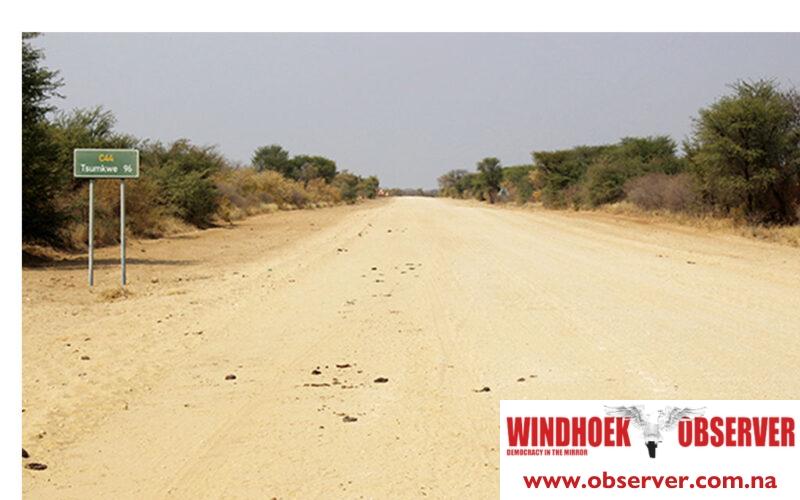Martin Endjala
Tsumkwe settlement in the northeastern part of the Otjozondjupa region is home to over 7 000 San people who are historically known for their hunting and gathering skills.
Over time, they have become accustomed to modern life, which presents unique challenges in their social and economic lives.
People from all over the country settled in Tsumkwe for work, while others established businesses to serve those who could not frequently travel 300 kilometres to Grootfontein, the nearest trading centre.
One of the pressing issues for both residents and business owners is the deteriorating road infrastructure, which affects both the trade and cost of goods at the settlement.
Businessman Eddy Hangula finds it difficult to maintain his business operations due to the poor road conditions between Tsumkwe and Grootfontein.
“Business is going well so far. The only challenge we have is the road. It is very bad. You cannot drive there and reach in time. They really need to fix it,” said Hangula.
Hangula runs a bar and said the poor roads also cause delays and restocking by day and this affects the availability of essential goods.
The shortage of supply and high demand for goods has, according to Hangula, resulted in an escalation in prices.
He noted that in some instances, a crate of 12 beers in Grootfontein on special can cost about N$210 or N$190, compared to N$260 in Tsumkwe.
According to him, transport costs are high and business owners are charged extra to those with cars for the collection of goods in Grootfontein.
“It is so hard to make a profit in Tsumkwe with this kind of model being used here, but we do not have a choice because we do not want our businesses to die,” he said.
Hangula suggested that the road could be upgraded from gravel to tar, which could improve the situation.
He also suggests building a warehouse nearby where locals and businesspeople can go to buy their goods.
The lack of a liquor license among some local traditional brewers is another concern for Hangula.
He revealed that these unregulated businesses are taking away customers from licensed establishments, further impacting the local economy.
“The other concern is. When it comes to credit, we have a set limit. We do not give credit to pensioners, but these traditional liquors do not care. They suck money out of the pensioners through exorbitant credits and some of them are even from the San community,” he said.
Tsumkwe’s challenges are not limited to businesses alone.
The high cost of goods affects the entire community.
Calvin Kazibe, a resident, pointed out that prices in Tsumkwe are too high for basic necessities, making daily life a struggle for many.
Imagine a loaf of bread costing between N$30 and N$40. How do you expect a struggling person to afford that? They would rather go to bed with hunger than spend such an amount. This is price fixing in a nutshell,” he said.
Kazibe also brought to light the matter of exploitative lending practices and high levels of debt linked to traditional liquor businesses, which drain the government grants intended to support the San People.
“These business owners, particularly the traditional brewers, have connections with those who are entrusted with paying grants to the San community, but they do not give the grants without taking out what they owe.”These guys do not care. As long as they get their money, they do not care. When they extend credit, they consistently double the price of the goods, he said.
Tsumkwe Constituency councillor Johannes Hausiku said he is aware of the situation and has taken steps to address the matter.
“Yes, of course, I’m aware because I’m driving on the same road. I have consulted the Roads Authority regarding the road issue on Tsumkwe road in which some areas are really bad,” he said.
Hausiku said that the RA is aware of the situation and is actively securing the necessary funds to initiate the tender bidding process.
A process he describes is beyond their control, as they cannot tell RA to do it today.
He called for patience and calm while efforts were being made to rectify the matter.




